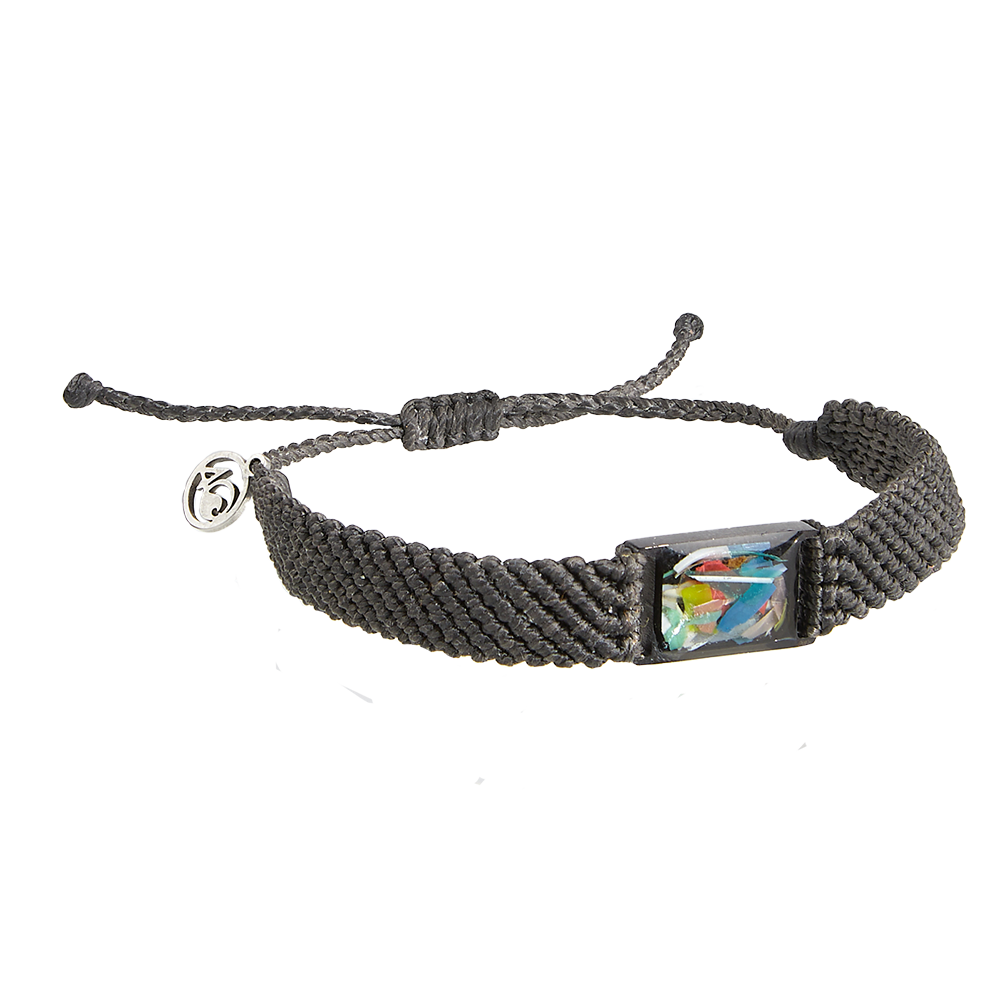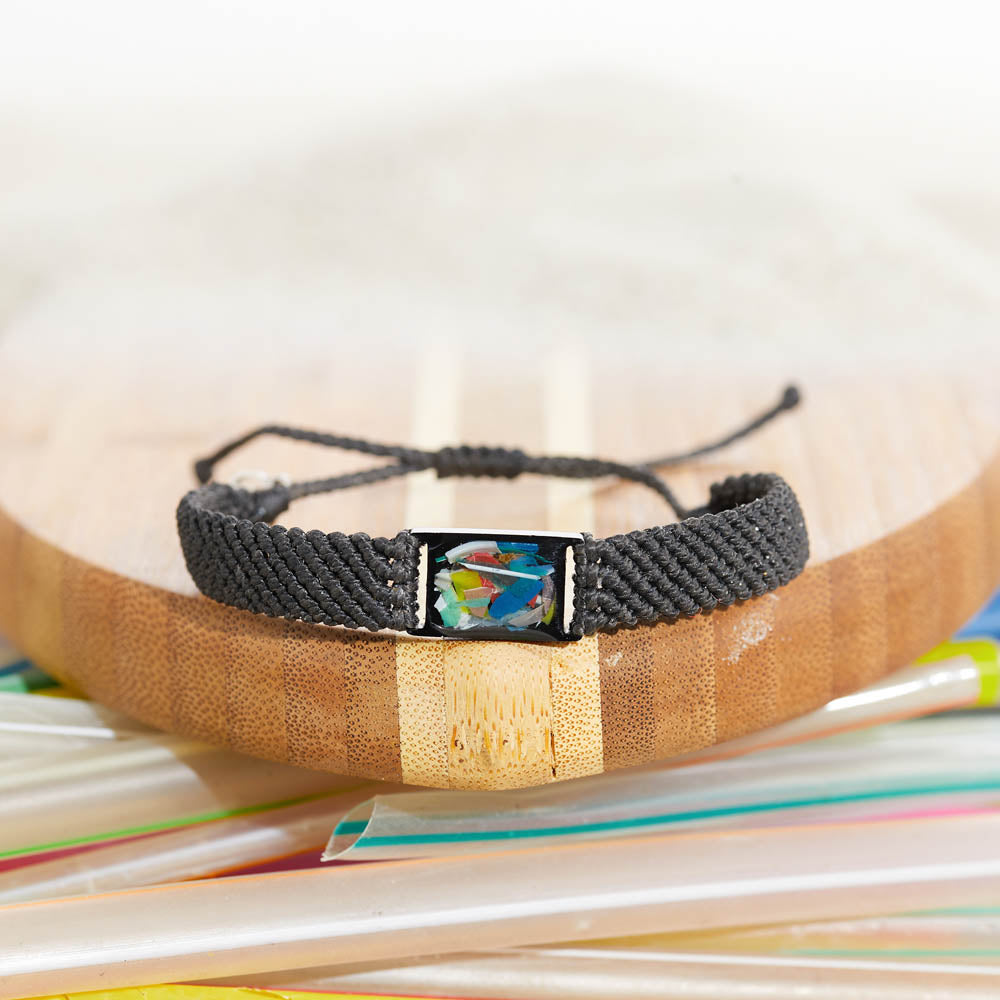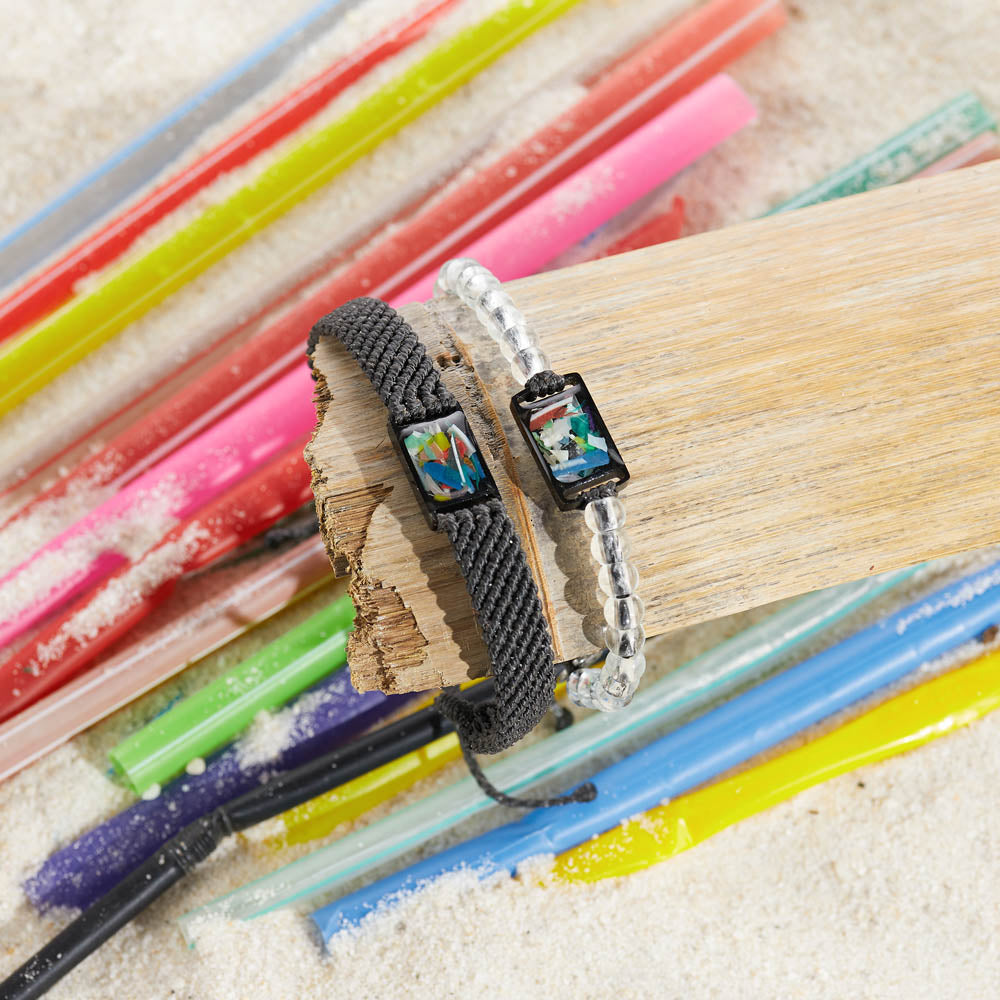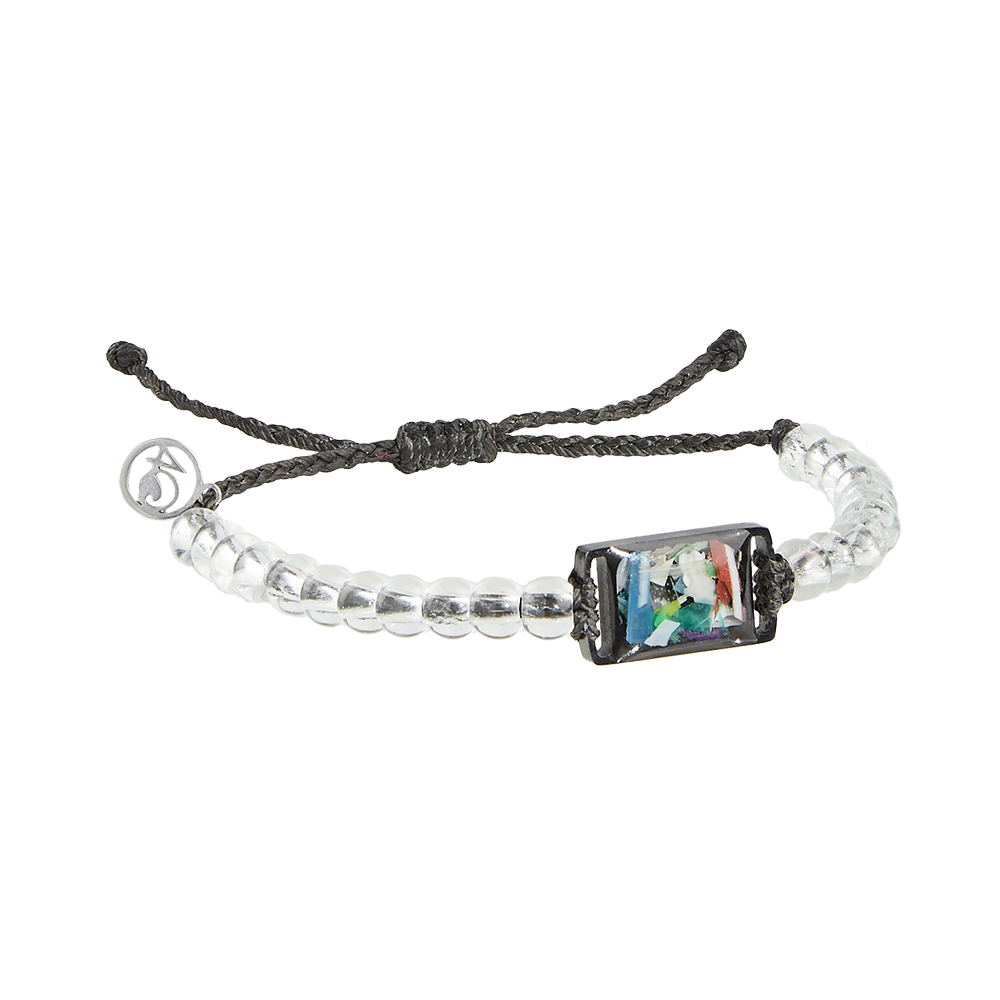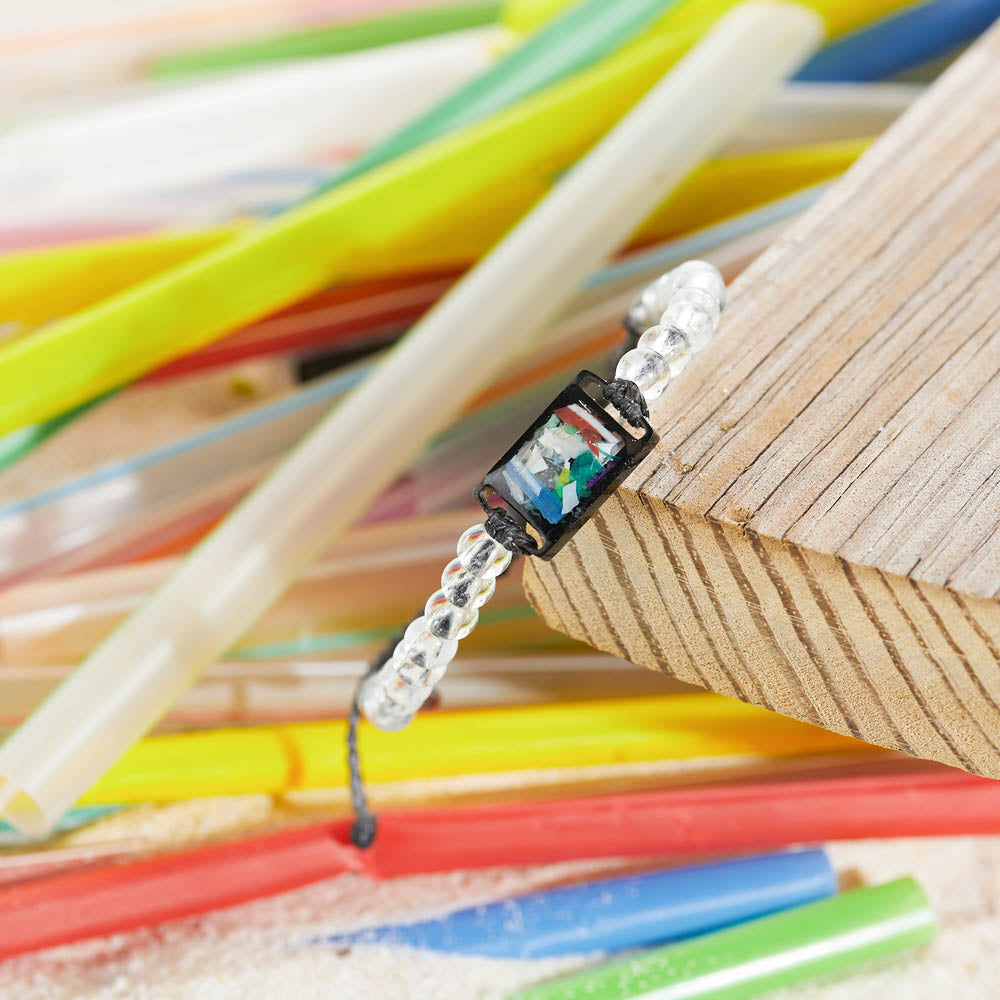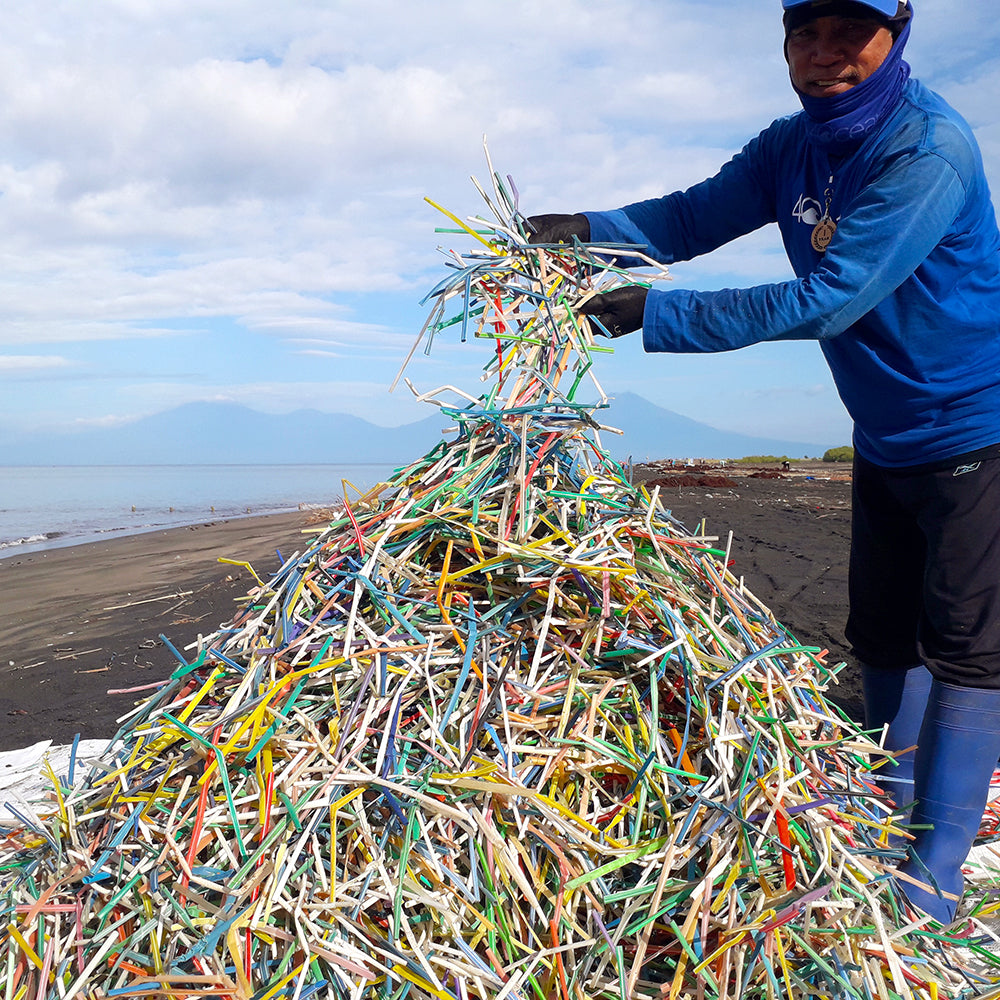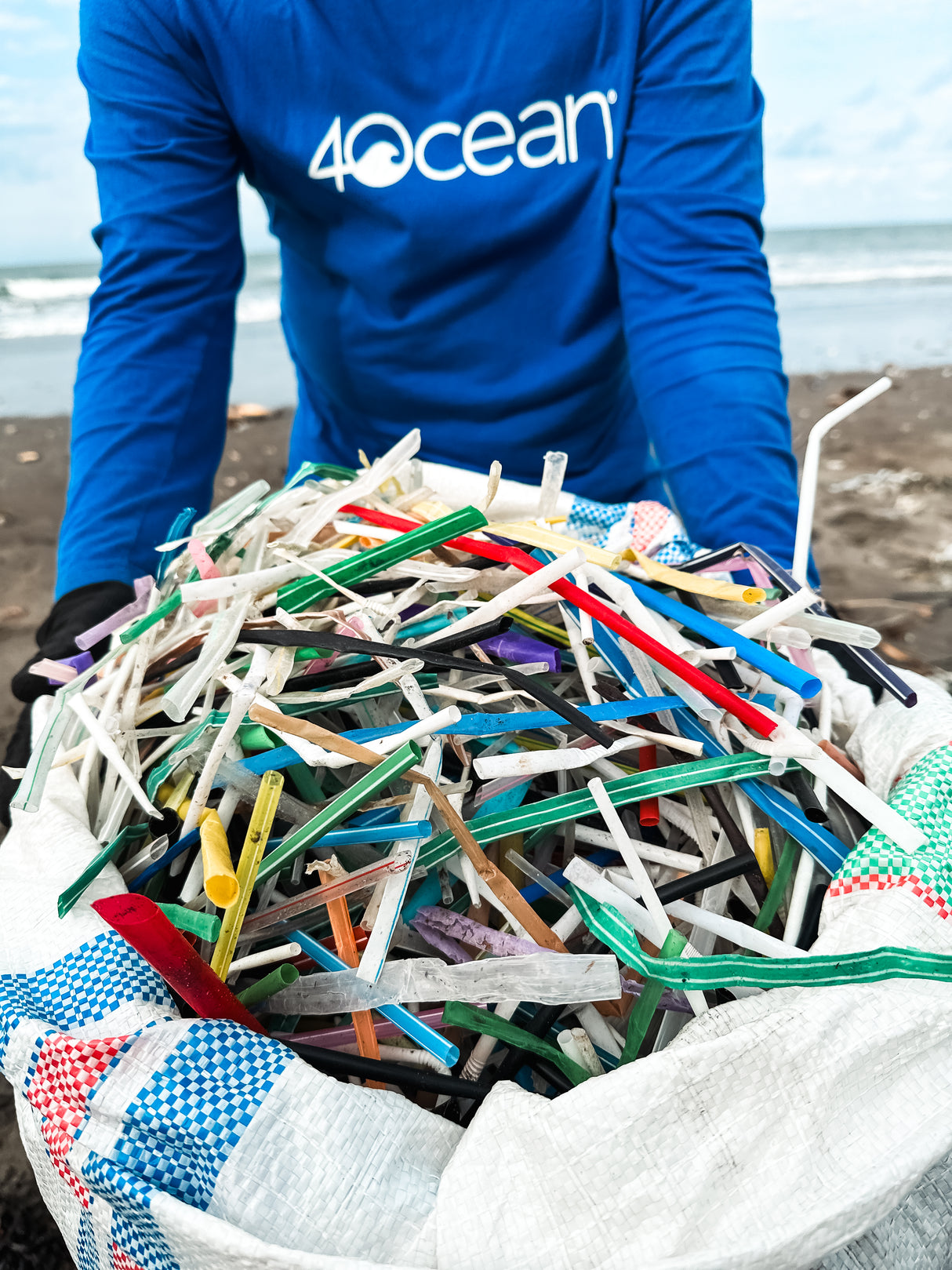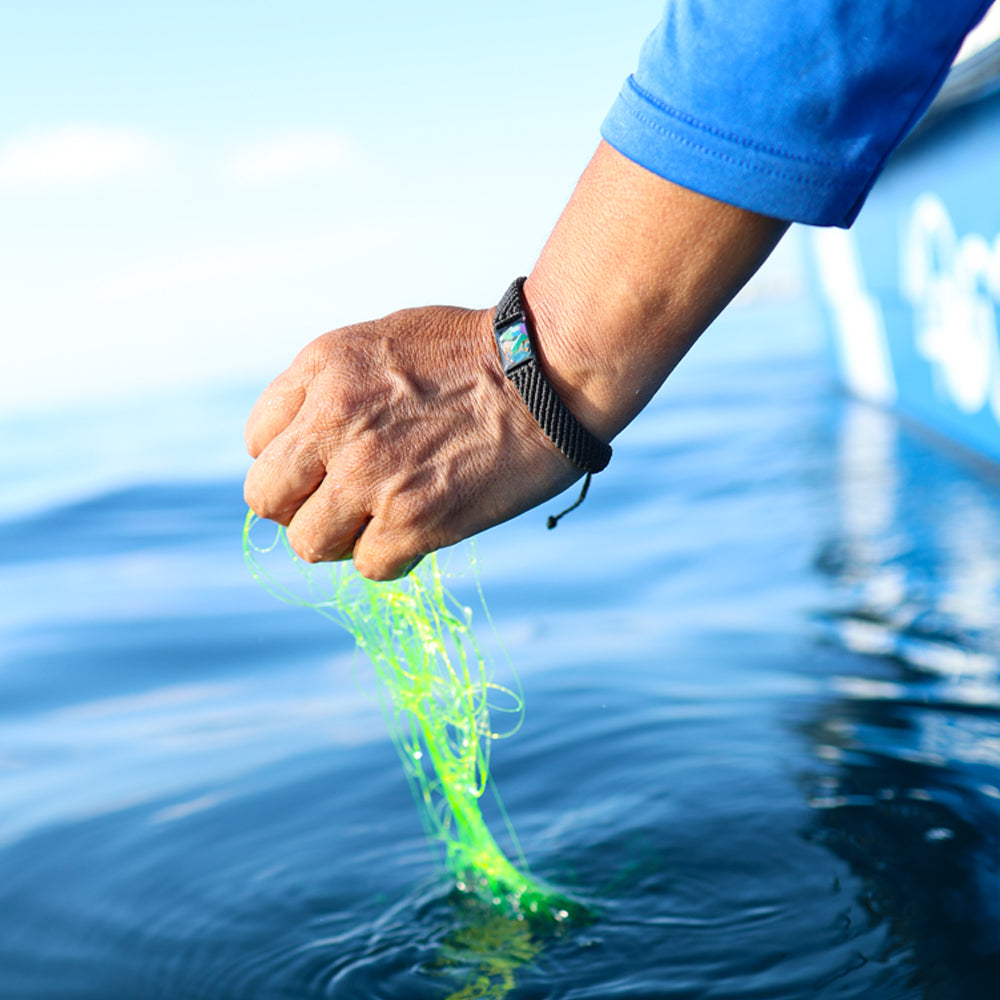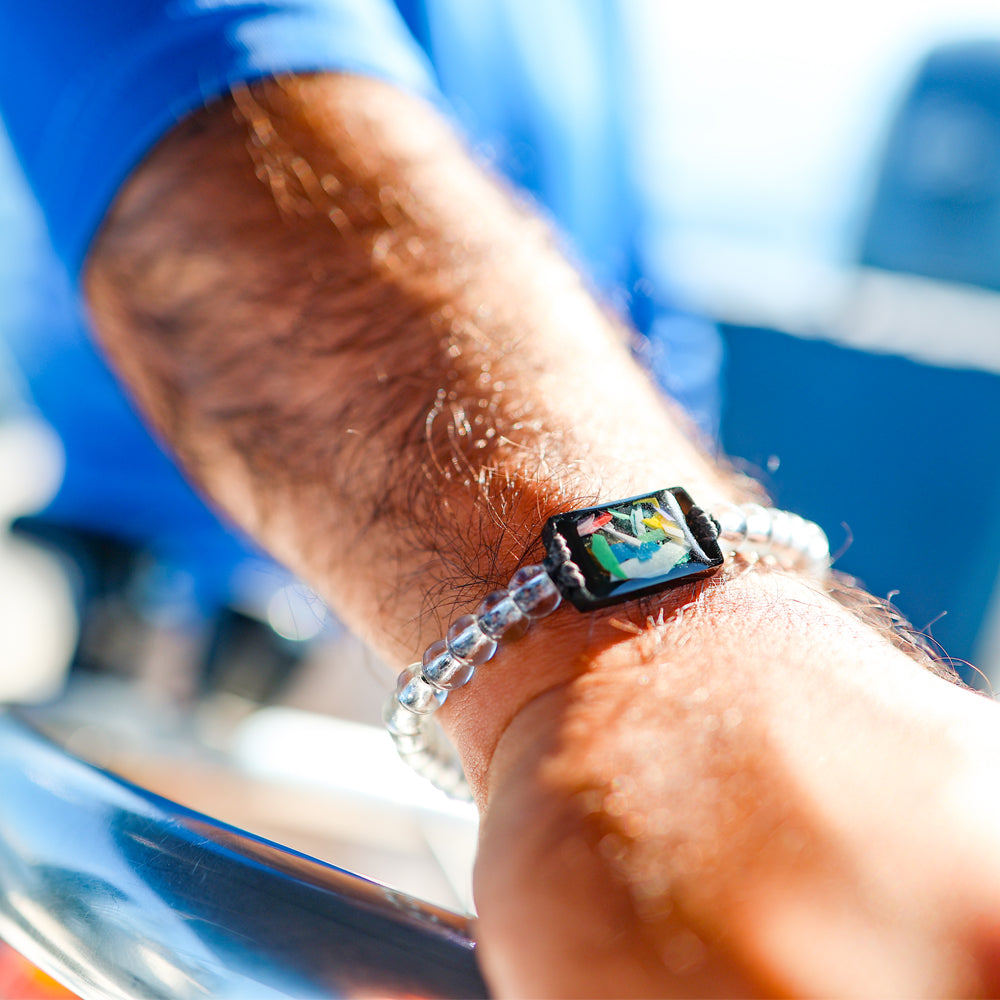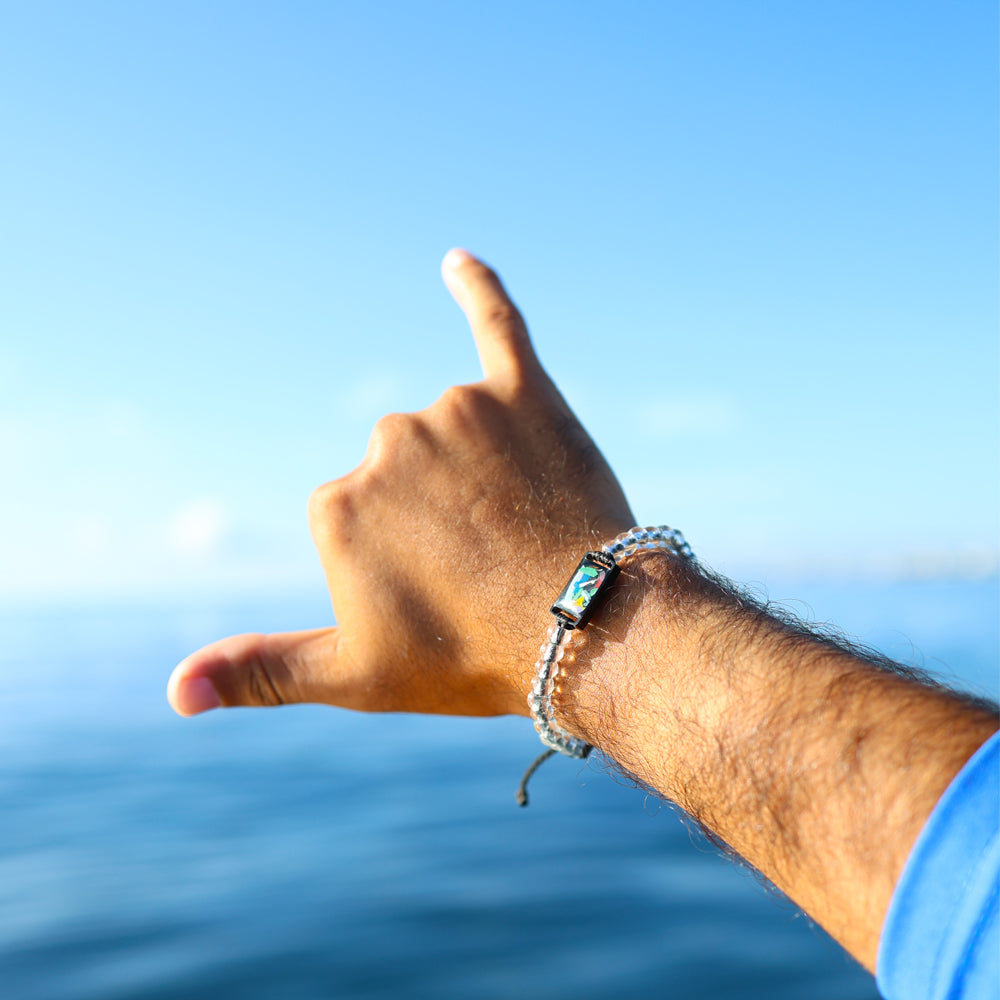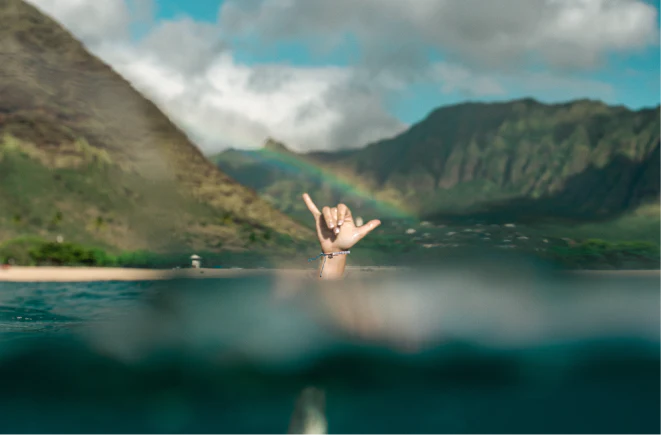
Last Straw Bracelet
Last Straw Bracelet - Braided is backordered and will ship as soon as it is back in stock.
Care information
Care information
Care: Your 4ocean bracelet is fully waterproof and coated with a protective layer of beeswax, making it safe to wear in the shower or the ocean. For best care, rinse it with fresh water after saltwater exposure.
Delivery and Shipping
Delivery and Shipping
Don't worry about your impact! Your shipping will be delivered with carbon neutral and plastic-free shipping. Expect your order to ship out within 2 business days.
Description
Description
- Handcrafted by local 4ocean Bali artisans
- Cord contains plastic collected by 4ocean captains and crew
- Unisex, waterproof, adjustable from 7 to 13 in. (18 to 33 cm)
- Guilt-free shipping is carbon neutral and plastic free
- See "How It's Made"
- 100% recycled stainless steel charms
- 95% post-consumer recycled glass beads (silica added for strength and durability)
- 96% (post-consumer) recycled content cord
- Warning: This product can expose you to chemicals including bysphenol A (BPA), which is known in the state of California to cause cancer, birth defects or other reproductive harm. What does this mean? Click Here
Payment & Security
Payment methods
Your payment information is processed securely. We do not store credit card details nor have access to your credit card information.
Collections
Stories from the Field
View allExtreme waste, minimal convenience

Roughly 500 million single-use plastic straws are used daily in the U.S. alone.
That’s enough to wrap around the world 2.5 times every single day—and none of them can be recycled!
That’s why they’re one of the most common types of debris our captains and crews recover from the world’s oceans, rivers, and coastlines.


Plastic straws are NOT recyclable
Single-use plastic straws are typically made from a type of plastic called polypropylene (PP or polypro for short), which is identified by this symbol:
Polypro is an extremely versatile plastic resin that’s used to make a variety of industrial, medical, and household products. It’s often called “the living hinge” because it’s resistant to cracking and stress, even when bent.

Single-use plastic straws are typically made from a type of plastic called polypropylene (PP or polypro for short), which is identified by this symbol:

Polypro is an extremely versatile plastic resin that’s used to make a variety of industrial, medical, and household products. It’s often called “the living hinge” because it’s resistant to cracking and stress, even when bent.

Polypro is now one of the most commonly used thermoplastics in the world. The ideal material for straws, you’ll also see it used in everything from food packaging to automotive parts.
And while polypro is technically recyclable, it’s actually one of the least recycled plastics. In fact, most curbside recycling programs won’t accept it.
But even when they do accept polypro, they still won’t accept straws.

That’s because these short-lived tools are too lightweight to make it through mechanical recycling sorters. They drop through sorting screens, mix with other materials, and contaminate entire recycling loads.
Plastics can only be recycled with like plastics, so contamination means entire batches of otherwise recyclable plastics go straight to the landfill instead of getting recycled into something new.
Stream2Sea is the ONLY sunscreen that’s scientifically formulated to be safe for fish and coral larvae!
TEST RESULTS
Swimming behavior of fish at 3, 6, 24, 48, 72, and 96 hours of exposure

STREAM2SEA

COMPETITOR
Animals most impacted by pollution from plastic straws
Plastic straws are a serious risk to wildlife everywhere. From marine and coastal environments to freshwater and inland habitats, these are some of the animals most impacted by straws.

Seabirds

Sea Turtles

Marine Mammals

Fish

Corals

Invertebrates

Amphibians

Insects
Used for less than 30 minutes, single-use plastic straws go on to pollute the environment and harm wildlife for centuries.

Sip your way to a cleaner ocean
Single-use plastic straws have only been around since the 1960s. And while we can’t discount the fact that they’ve improved life for folks with disabilities, most of us could easily switch back to the reusable alternatives that we used before plastic took over. Pair your Last Straw Bracelet with these sustainable swaps to maximize your impact!

